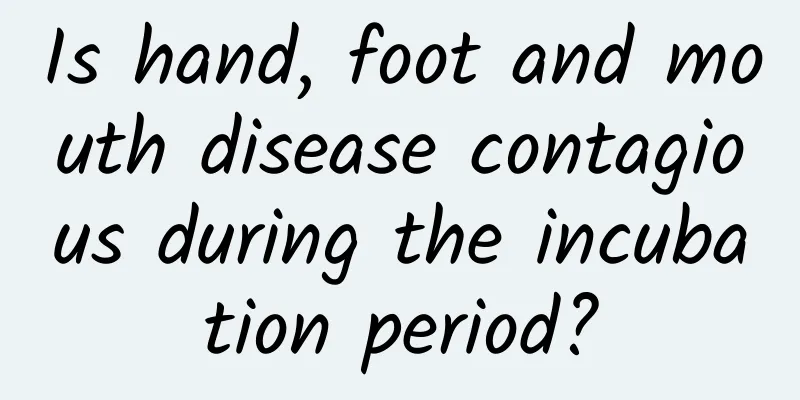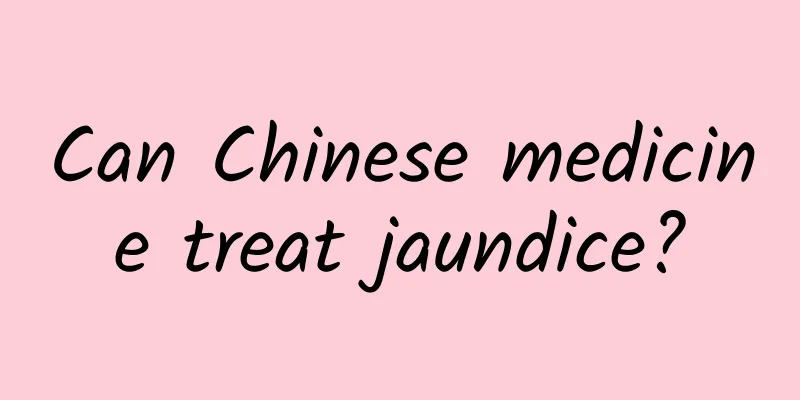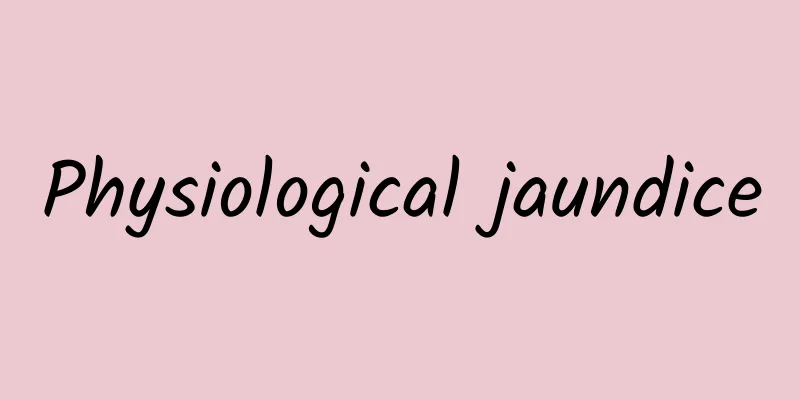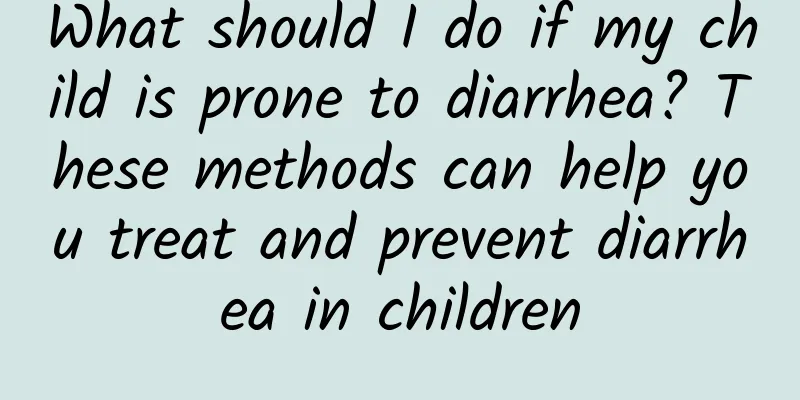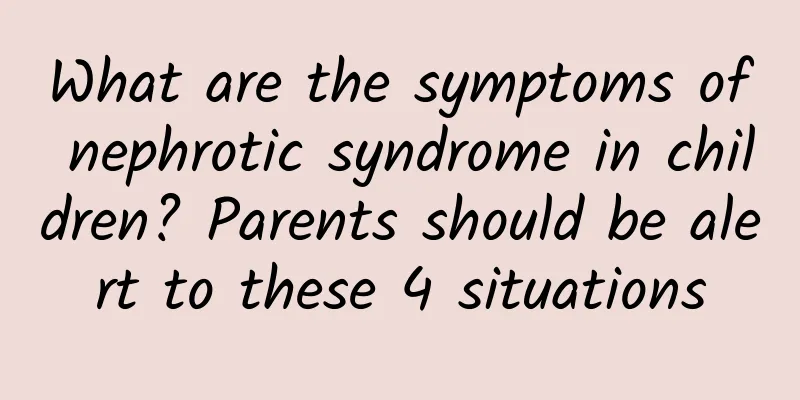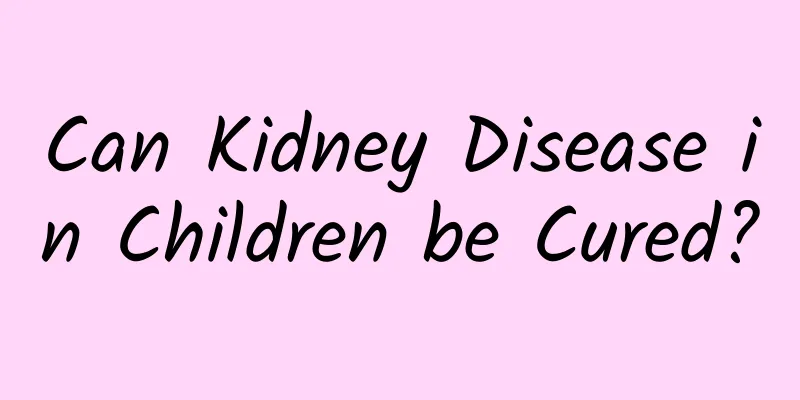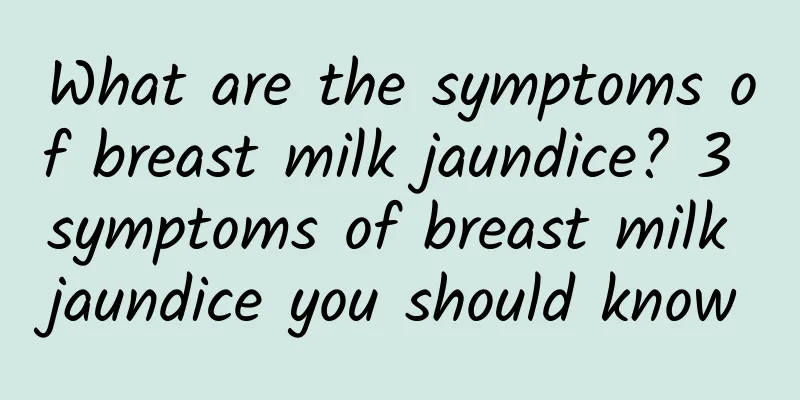How to treat hand, foot and mouth disease in one-year-old babies
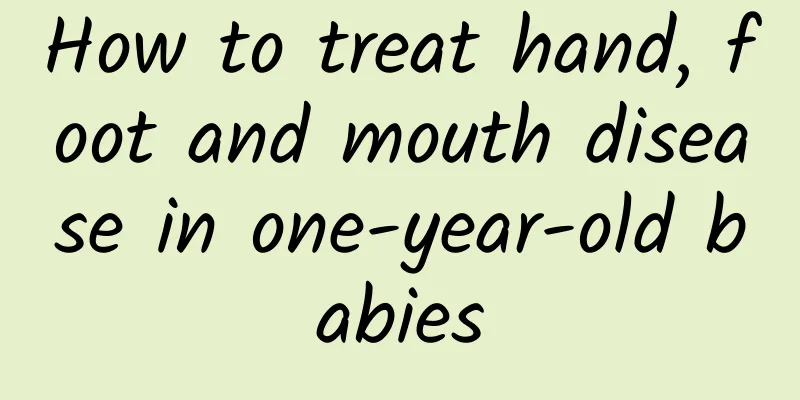
|
Hand, foot and mouth disease is a common infectious disease in infants and young children. One-year-old infants infected with hand, foot and mouth disease should be treated promptly and given intensive care. Symptoms can be controlled with medication, diet adjustment and daily care to speed up recovery. If severe symptoms occur, seek medical attention as soon as possible. 1) Drug treatment: There is no specific medicine for hand, foot and mouth disease at present, and treatment is mostly symptomatic. When a baby has a high fever (body temperature over 38.5℃), antipyretics such as ibuprofen or acetaminophen can be used under the guidance of a doctor to relieve fever symptoms. Some antiviral drugs (such as ribavirin) can be used to help control the spread of the virus, but they must be used under the guidance of a doctor. Painful ulcers in the mouth can be relieved by applying some protective agents (such as compound chlorhexidine mouthwash). 2) Diet adjustment: One-year-old babies are prone to oral pain or difficulty swallowing during illness. It is recommended to prepare some cool, easily digestible liquid or semi-liquid food, such as warm porridge, millet paste, egg drop soup, etc., to avoid hard, hot, and spicy foods that irritate oral ulcers. You can also add a moderate amount of fruit juice rich in vitamin C to enhance immunity, such as apple juice or orange juice, but it should be diluted before drinking to avoid irritating oral wounds. During this period, be careful to avoid letting your child eat any snacks containing too much sugar to avoid aggravating inflammation or irritating the affected area. 3) Daily care: Maintaining good hygiene habits is the key to treatment and prevention of transmission. Wash the hands of children frequently to ensure clean and hygienic skin and keep the skin of hands and feet dry. Especially on the hands where the rash occurs, scratching should be avoided to prevent secondary infection. For rashes on the hands and feet, they can be washed with warm water and kept dry. If necessary, use a weak topical ointment recommended by a doctor (such as zinc oxide ointment) to promote wound healing. At the same time, ensure that the room is ventilated to avoid contact between the baby and other children to reduce the risk of transmission. Once the child has symptoms such as persistent high fever, mental depression, vomiting or weakness in the limbs, he should seek medical attention immediately to rule out severe illness. Hand, foot and mouth disease is usually a self-limiting disease. Most children can recover naturally within 7-14 days, but parents should closely monitor the condition, especially for one-year-old infants, and pay more attention to the child's diet, temperature changes and mental state to avoid severe illness. If the condition continues to worsen or is accompanied by abnormal symptoms, please seek medical attention in time so that your child can receive professional diagnosis and treatment. |
<<: Are childhood seizures life-threatening?
>>: What tests should be done for infants with Hirschsprung's disease?
Recommend
Is hand, foot and mouth disease contagious during the incubation period?
Hand, foot and mouth disease is contagious during...
How many days does it take for the fever of hand, foot and mouth disease to subside? How many days does it take for the fever of hand, foot and mouth disease to subside?
In fact, when it comes to hand, foot and mouth di...
The examination of eczema in children varies according to the type
Eczema on the baby's face or body is particul...
Acupuncture treatment for poliomyelitis
Polio is a disease that babies are very likely to...
How to cure eczema in children
To completely cure childhood eczema, first of all...
How to treat constitutional jaundice
Generally speaking, constitutional jaundice is a ...
How many days does it usually take for hand, foot and mouth disease to heal? Can hand, foot and mouth disease be contagious to adults?
How many days does it usually take for hand, foot...
How to prevent and care for neonatal jaundice? Does Mommy Love treat jaundice?
Babies are prone to jaundice after birth. Some ja...
What are the specific symptoms of indigestion in children?
In family life, the growth of children is the mos...
What are the precautions after Kawasaki disease surgery?
Kawasaki disease is a common pediatric disease, s...
How to prevent children from catching colds in autumn and winter? Six tips to prevent and treat children from catching colds
Autumn and winter are the two seasons that are mo...
Can children supplement calcium in summer? What should children pay attention to when supplementing calcium in summer?
Children can take calcium supplements in the summ...
What should we pay attention to when children have cough
Children are one of the common patients with coug...
How to treat repeated fever in children with pneumonia
Repeated fevers due to pneumonia in children requ...
Can Nephrotic Syndrome be Cured in Children?
Nephrotic syndrome is a common disease in childre...
